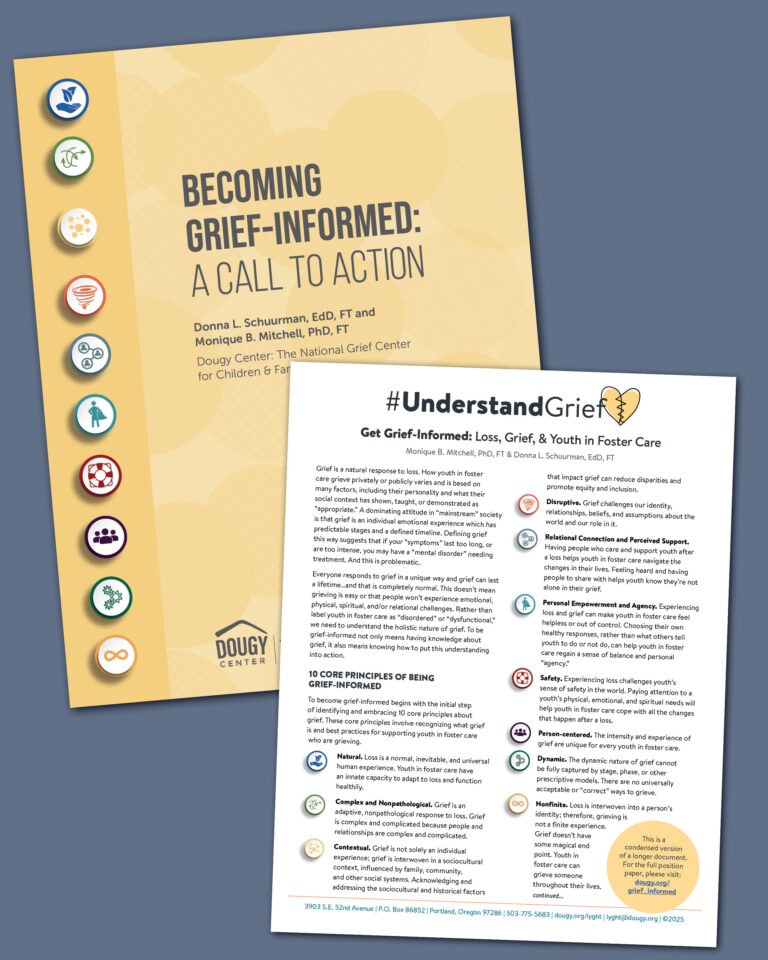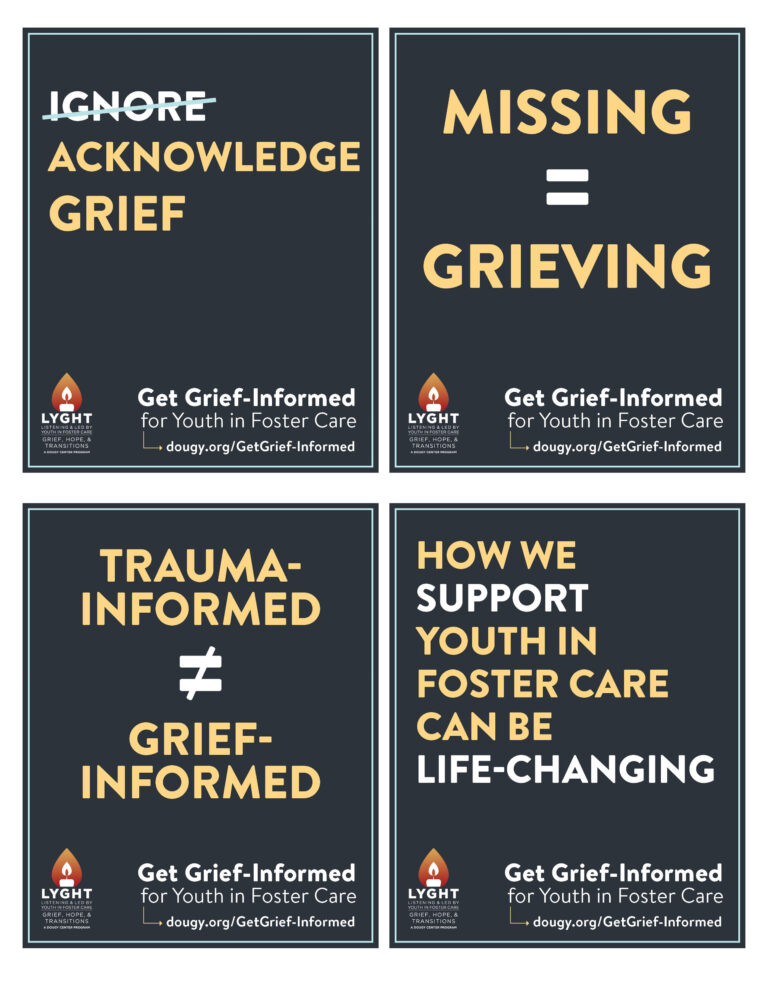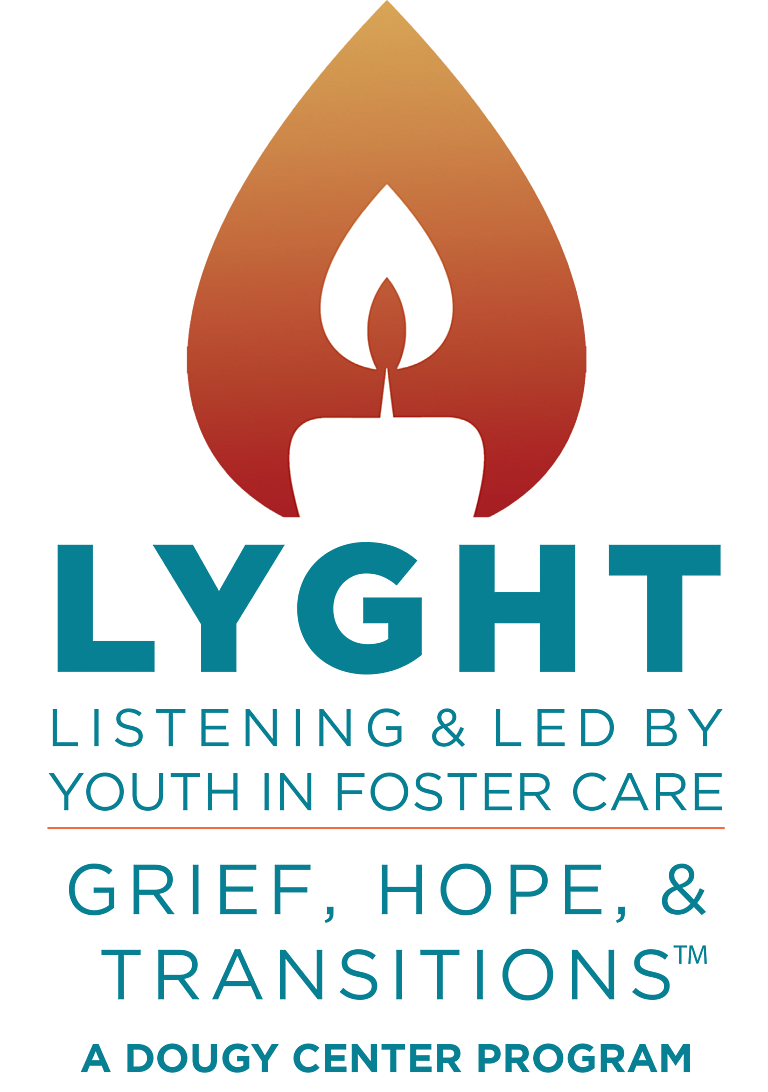Get Grief-Informed for Youth in Foster Care
Whether a death or non-death loss, most youth in foster care are grieving. We know that grief is a natural and normal response to loss, and how we support youth in foster care can be life-changing.
Make a commitment to better serve youth in foster care who are grieving. Learn what it means to be grief-informed, and put that understanding into action.
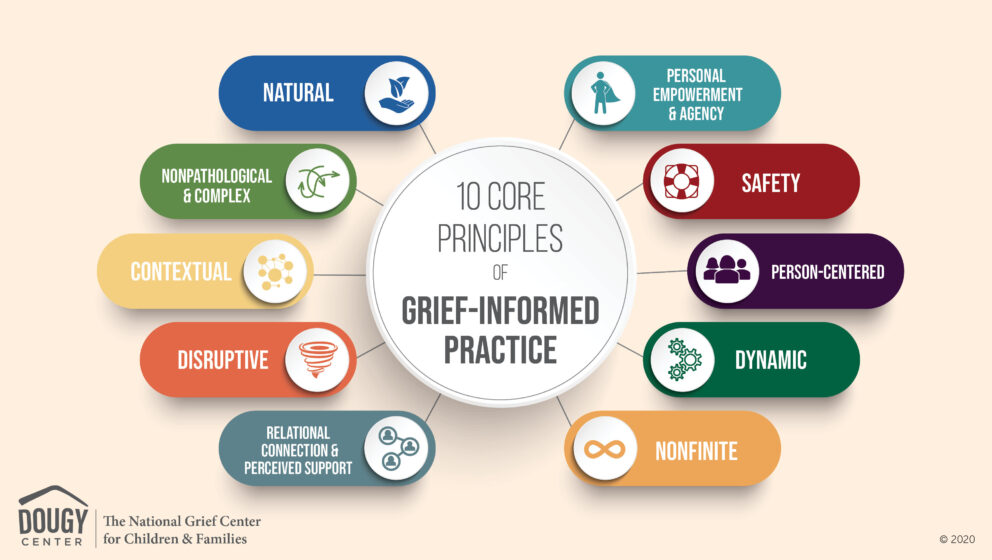
What does it mean to be grief-informed?
The majority of child welfare professionals are trauma-informed; however, most are not grief-informed. It is critical that the child welfare community be aware of grief-informed best practices and how to best support youth in foster care who are grieving.
Below are some grief-informed resources for child welfare professionals and continuing education opportunities for professionals which offer foundational knowledge on grief-informed best practices.
Get Grief-Informed: Loss, Grief, & Youth in Foster Care
The Bill of Rights for Youth in Foster Care Who are Grieving
Tips for Supporting Youth in Foster Care Who are Grieving
Becoming Grief-Informed: A Call to Action
Becoming Grief-Informed: Foundations of Grief Education
An online asynchronous course teaching the fundamentals of grief education
Grief Education Webinars
Online trainings that provide professionals with grief education on specialized loss and grief topics

Language Matters
The language we use to talk about youth in foster care shapes the way we perceive and support them. Youth in foster care can feel supported or disregarded based on how people respond to them, the words they use, and the questions they ask. When speaking with youth about loss, grief, and other sensitive topics, it’s important that we use language that is not only compassionate but also demonstrates our investment in respecting the dignity and worth of all youth.
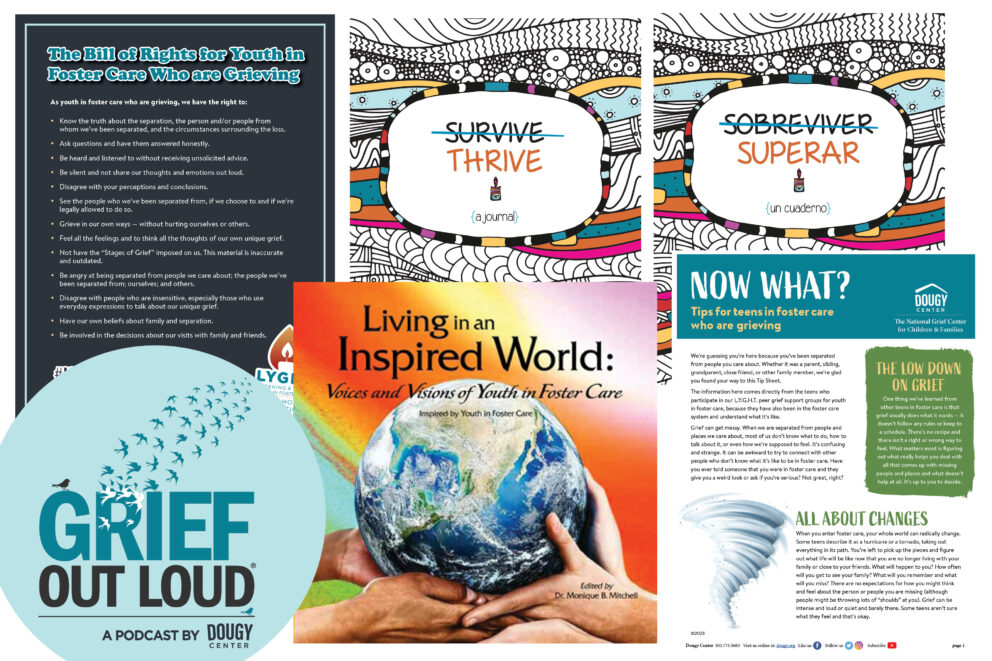
The L.Y.G.H.T.™ Program
"L.Y.G.H.T. gives me the time and space to speak openly and safely, without being judged about what I’ve been through or what I have lost throughout the years. I feel like I can say anything...It is a place I can talk openly without me ever feeling not listened to. I feel safe." - L.Y.G.H.T. youth participant
The Listening and Led by Youth in Foster Care: Grief, Hope, & Transitions (L.Y.G.H.T.)™ program is an evidence-based, trauma-informed peer grief support intervention for youth in foster care. L.Y.G.H.T. provides a safe space for youth in foster care to listen, talk, and offer support to one another as they cope with missing family, friends, and other important people, as well as other death and no-death losses in their lives.
Randomized Control Trial Findings
- The L.Y.G.H.T. Program: An Evaluation of a Peer Grief Support Intervention for Youth in Foster Care (Randomized control trial #1)
Coming soon! “Peers Can Help One Another”: A Randomized Controlled Trial of Peer Grief Support Intervention for Youth in Foster Care
